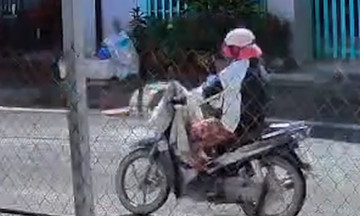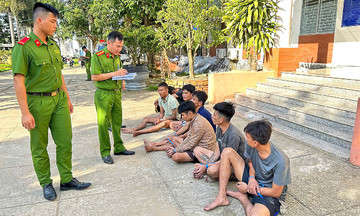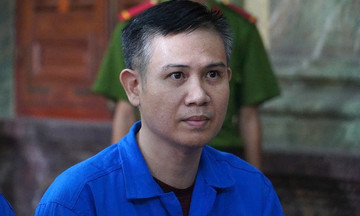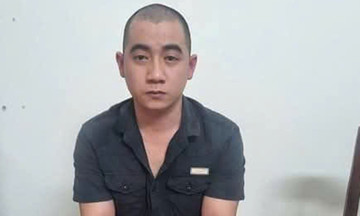In the early afternoon of a late winter day in 2019, two masked men emerged from across the Vietnam-China border near Phong Tho district, Lai Chau province. They cautiously stepped onto Vietnamese soil.
The second man, Song A Vang, carried a sharp knife and a red plastic bag. As they reached the middle of the forest, a young lieutenant, Hoang A Lien, sprang from the bushes, kicking the knife from Vang's hand. He wrestled Vang to the ground as his colleagues emerged from their hiding spots and handcuffed the suspect. The other man escaped into the dense forest.
Vang's bag contained 6 bricks of heroin weighing 2 kg, being transported from China into Lai Chau for distribution. He confessed to being a hired courier, paid 3 million VND per brick.
Lien already knew Vang. In late 2018, police crackdowns in Son La and Dien Bien provinces disrupted major drug operations. Vang fled to Dien Bien, then Lai Chau, seeking new opportunities.
Lien discovered Vang's plan to connect with dealers in the Golden Triangle, establishing a drug trafficking route. Their plan involved moving goods from Myanmar through China into Lai Chau for local sale or further transport to other parts of China.
Posing as a buffalo trader, Lien spent a month near the Ma Lu Thang border gate. He spent most of his time gathering information, even buying a buffalo at the border market just to make contact with Vang. Gradually, their interactions evolved from suspicion to a semblance of friendship.
Lien recognized Vang's cunning and cautious nature. Despite spending time together, Vang remained guarded. He even disappeared for a month, cutting off all contact. The investigation seemed to stall, but Lien’s persistence and shrewdness paid off.
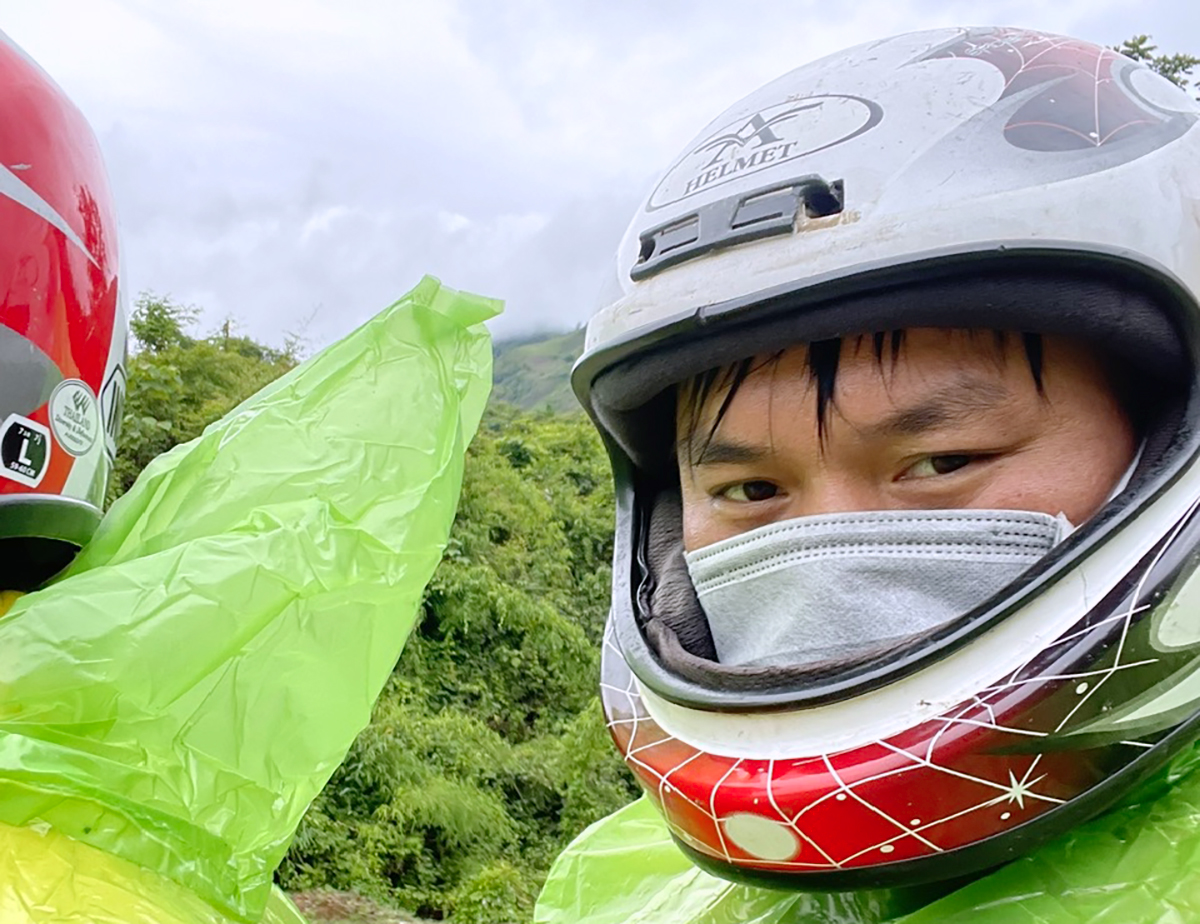 |
Major Hoang A Lien during a reconnaissance mission. Photo: NVCC |
Major Hoang A Lien during a reconnaissance mission. Photo: NVCC
Growing up in a Dao family of 5 siblings in a border village in Lai Chau, Lien walked dozens of kilometers each day to school. In secondary school, he moved to a boarding school in the district center, marking a new chapter in his life. The desire to escape poverty and enjoy regular meals with meat fueled his focus on education.
Beyond poverty, another haunting experience shaped Lien: the constant sound of mourning from funerals of young men who died from drug overdoses. These were men in their early 30s, emaciated and suddenly gone.
One day, Lien witnessed police arresting a drug trafficker outside his school. The 14-year-old boy became captivated by the police uniform, dreaming of becoming an officer to fight drug crime.
After secondary school, Lien faced a choice: continue his studies in the district or attend the Vietnam-Laos Friendship School in Hanoi. As an ethnic minority student, he qualified for free tuition and boarding at either school. However, traveling to Hanoi would burden his parents with additional monthly expenses.
Encouraged by his teachers, Lien persuaded his parents to let him go to Hanoi. Throughout high school, he excelled academically. In 2010, he became one of two students from Lai Chau province to gain admission to the People's Police Academy, where he chose to specialize in narcotics.
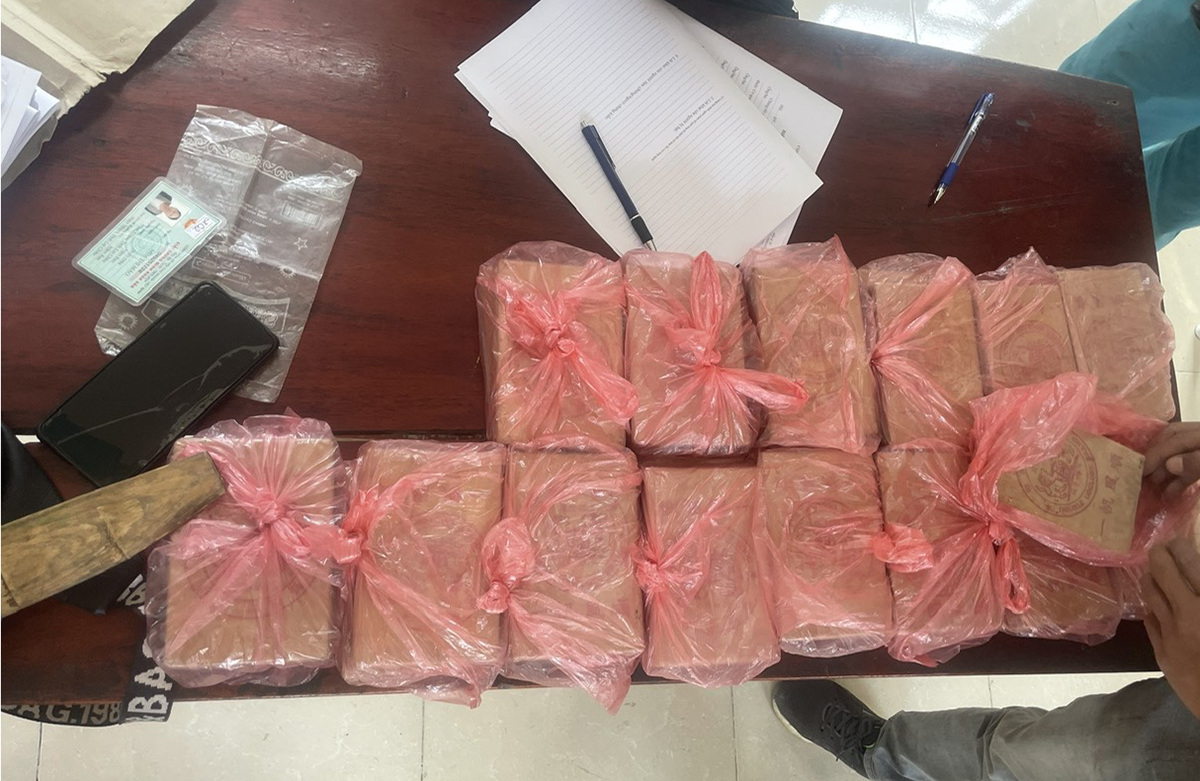 |
Dozens of bricks of heroin seized in an operation Lien participated in. Photo: NVCC |
Dozens of bricks of heroin seized in an operation Lien participated in. Photo: NVCC
Upon graduating in 2015, Lien was assigned to Phong Tho district police but volunteered for the provincial PC04 drug unit. His first operation involved apprehending a group smuggling drugs from China into Vietnam.
Responding to a 2 a.m. call, Lien arrived at the unit within 15 minutes. Equipped with a handgun, a raincoat, and a bottle of water, he rode on a colleague’s motorcycle. After over an hour, he was dropped off near the forest edge, a few kilometers from the border, to begin his ambush.
He and a colleague lay motionless in the undergrowth along a forest trail. Despite heavy rain, Lien held his position, knowing that such conditions often facilitated criminal activity. As the sun rose, however, there was no sign of their target. By midday, hunger, fatigue, and anxiety set in.
Around 3 p.m., while battling leeches, Lien heard a shout from nearby. The officers sprang into action, intercepting two men on a motorcycle. One man, carrying a basket suspected of containing drugs, brandished a knife at the police. Lien swiftly disarmed him, and together they subdued the suspect. Five bricks of heroin were seized.
Lien recalls ambushes lasting 3 days and nights in the forest, their shoes soaked and reeking. Each officer managed only 30-minute naps, often staying awake to avoid snoring. Their efforts culminated in the arrest of 3 heroin traffickers.
With experience, Lien transitioned to undercover work, navigating drug-ridden areas on his motorcycle. As a local, he could blend in, posing as a motorbike taxi driver, electrician, or trader.
"I once shared a room with five people who smoked drugs all night. Another time, I was pressured to use drugs. Under duress, I used my knowledge of narcotics to challenge their inspection methods, narrowly escaping the situation," Lien said.
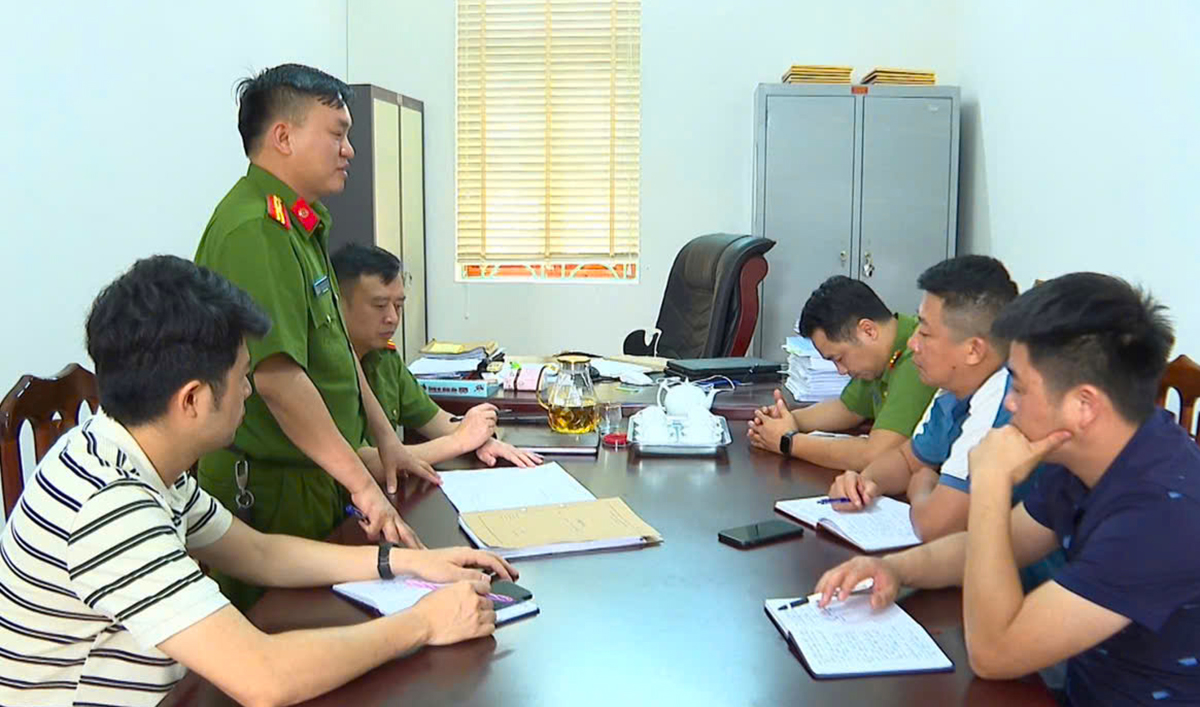 |
A strategy meeting. Photo: NVCC |
A strategy meeting. Photo: NVCC
Beyond arrests, Lien collaborated with local authorities to eradicate opium poppy cultivation. He described the seemingly peaceful Nam Dinh village in Ta Tong commune, Muong Te district, as harboring a dark secret: widespread drug addiction among both adults and children. He witnessed young men, emaciated and with dark lips, staggering through the streets in the early morning, already high.
Peeking through the window of a dilapidated house in Nam Dinh, Lien was moved by the sight of a couple lying on a bed, smoking opium, while two orphaned children under 10 looked on. The house was bare, with only 4 sets of bowls and chopsticks on a table and a pot of cold rice.
This experience taught Lien that arrests alone weren't enough; reducing demand was crucial. He and his team worked tirelessly, village by village, eradicating opium poppies. Authorities also implemented programs and "strong measures" to encourage addicts into rehabilitation.
In over 10 years of service, the 35-year-old major has lost count of the operations and arrests he's been involved in. There have been week-long ambushes that yielded no results. In 2022 and 2023 alone, Lien helped seize nearly 200 bricks of heroin, averaging one brick every 3.5 days.
For his dedicated service, Lien was recognized as an exemplary officer for seven consecutive years, from 2018 to 2024. He received a commendation from the Prime Minister and twice earned the title of "Emulation Soldier." His collection of nearly 30 certificates and commendations recently grew with another award at the National Security Emulation Congress.
 |
Major Hoang A Lien, current Deputy Head of the Criminal Police Department of Lai Chau Province. Photo: Pham Du |
Major Hoang A Lien, current Deputy Head of the Criminal Police Department of Lai Chau Province. Photo: Pham Du
Having served as an investigator, deputy team leader, and team leader in the PC04 unit, Lien is now the Deputy Head of the Criminal Police Department of Lai Chau Province. In every role, his focus remains on eradicating drugs from the villages.
At the 9th National Security Emulation Congress on 4/8, General Secretary To Lam acknowledged the dedication of officers like Lien who dedicate their lives to combating drug crime, often placing their families at risk.
The General Secretary emphasized that criminals employ various tactics, from bribery and coercion to attacks and "sugar-coated bullets." He called for policies to protect officers, providing them with the necessary resources and a safe environment to perform their duties effectively.
Pham Du






